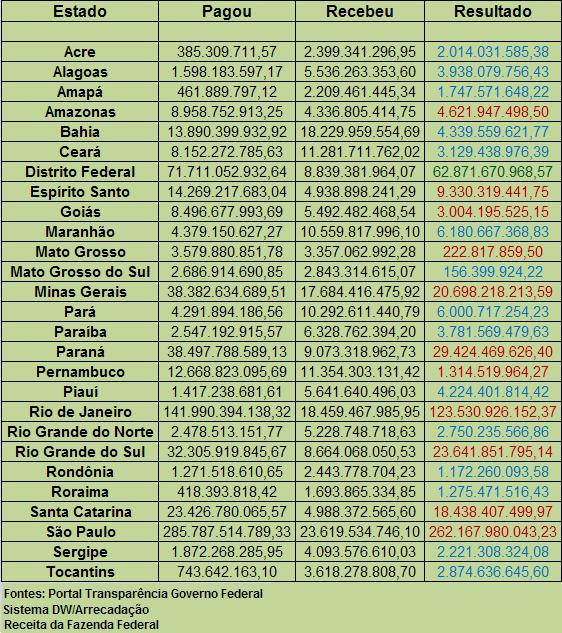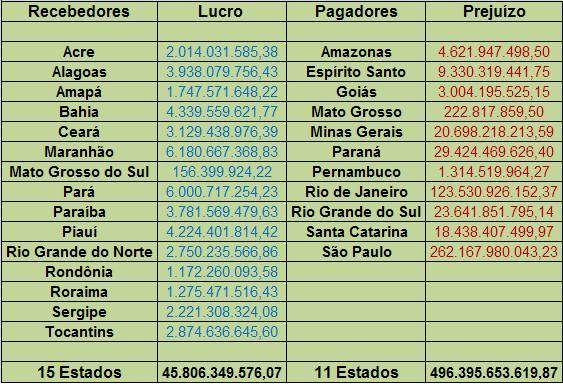Mas, se ele se deixar levar pelo canto de sereia de capitalistas promíscuos, de burocratas corruptos, e de políticos idem, financiando projetos mal concebidos, custosos e sem retorno definido, então ele vai continuar a história sumamente infeliz dos últimos 60 anos de ajuda ao desenvolvimento e de cooperação Norte-Sul, ainda que ele se pretenda Sul-Sul (o que não quer dizer que seja melhor do que um banco de e para países desenvolvidos).
Tenho minhas sinceras dúvidas, conhecendo a maneira de fazer negócios dos chineses, sobretudo na África, e as tendências inerentemente corruptas das empresas estatais e das burocracias dos países membros, sobretudo quando guiados por lideranças que desprezam determinados princípios e valores, prevejo que será mais um banco, a promover negócios aqui e ali, sem realmente contribuir para o atingimento de seus objetivos estatutários, que aliás são sempre definidos no linguajar politicamente correto de todos os governos atualmente.
Os dois economistas citados na matéria do Shanghai Daily parece exibir uma ingenuidade ilusória e totalmente inadequada a pessoas que lidam com a análise econômica:
" Joseph Stiglitz and Nicholas Stern congratulated the bank on its launch and said they hoped it would help address some “central problems” of modern society concerning wealth distribution, climate change and environmental protection."
Bem, se for assim, o banco já começa mal.
Banco é para atuar no mercado de capitais, fazendo a ponte entre a oferta e a demanda de capitais, só isso, ponto e nada mais. Se ele pretende atuar na "distribuição de renda" já começa mal, pois esta não é uma função de bancos, que não criam riqueza, apenas circulam a riqueza. Ele pode até emprestar mais recursos para os pobres e é para isso que ele existe, mas esse dinheiro é apenas um meio para criar riqueza -- desde que aplicado ou investidos racionalmente -- não sendo ele mesmo riqueza nova. O dinheiro saiu de algum lugar antes de ser aplicado ou emprestado.
Tampouco deve ele atuar em mudança climática: essa é uma agenda ideológica, politicamente correta, que tem pouco a ver com as funções de um banco. O mesmo se aplica à tal de proteção ambiental, o que é puro bullshit politicamente correto.
Banco é feito para emprestar dinheiro com alguma, ou total, perspectiva de retorno, ponto, apenas, isto. Pretender que ele seja agente de justiça social, distribuindo riquezas, é uma grande ilusão.
Então, minhas saudações ao novo banco, mas não acho que ele era indispensável nem de uma necessidade absoluta.
Vamos ver...
Paulo Roberto de Almeida
BRICS’ new bank open for business
OFFICIALS from China and several of the world’s other largest developing nations launched the New Development Bank in Shanghai yesterday.
At the opening ceremony, Chinese Finance Minister Lou Jiwei said the bank will encourage all-inclusive cooperation among developing countries, led by the BRICS nations of Brazil, Russia, India, China and South Africa.
“It is to meet the urgent demand of such countries in infrastructure construction and beyond,” Lou said, adding that it will complement the existing international banking system, rather than challenge it.
KV Kamath, the bank’s president, said he is confident it will deliver people’s expectations.
“We have seen countries closely cooperating, and we hope to collaborate with like-minded institutions like the Asian Infrastructure Investment Bank,” Kamath said. “We will listen carefully to our members and try to offer tailor-made services.”
Shanghai Mayor Yang Xiong said the city will do its best to facilitate growth of the new bank, which may in turn bolster the city’s development.
A BRICS bank was first suggested by economists Nicholas Stern and Joseph Stiglitz in 2011, and the five countries signed an agreement last year which said the bank’s purpose is to “mobilize resources for infrastructure and sustainable development projects in BRICS and other emerging economies and developing countries, complementing the existing efforts of multilateral and regional financial institutions for global growth and development.”
In a video message screened at yesterday’s ceremony, Stiglitz and Stern congratulated the bank on its launch and said they hoped it would help address some “central problems” of modern society concerning wealth distribution, climate change and environmental protection.
The bank, headquartered in Shanghai, will have initial authorized capital of US$100 billion, and its initial subscribed capital of US$50 billion will be shared equally among the five founding members.
In a statement issued yesterday, Jim Yong Kim, president of the World Bank Group, said he was committed to working closely with the bank and other multilateral institutions and offered to share knowledge and to co-finance infrastructure projects.
“These types of partnerships will be essential to reach our common goals to end extreme poverty by 2030, boost shared prosperity, and to reduce inequalities,” Kim said.
The new bank, as well as the AIIB set up earlier this year, aims to address the world’s huge infrastructure needs, which are estimated to have an annual gap of US$1 trillion to US1.5 trillion in emerging markets and low-income countries.
Asian Development Bank President Takehiko Nakao also issued a statement yesterday saying his bank “looks forward to working with this new member of the global family of multilateral development banks in areas of common interest in Asia and Pacific.”
The BRICS economies have fueled more than half of the world’s economic growth over the past decade and are carrying out structural reforms to create balanced, sustainable growth in order to unlock domestic demand.
Economic ties have improved within the BRICS framework over the past six years since the bloc’s first summit. Trade among BRICS nations in 2013 totaled US$350 billion, 2.5 times the value six years ago. China is now the largest trading partner of Brazil, Russia and South Africa, and India’s second-largest trading partner.
At the end of last year, China’s accumulative investment in the other four countries exceeded US$55 billion.
The five nations, with 42.6 percent of the world’s population and roughly a third of the world’s land area, have a combined GDP of about a fifth of the global total.





